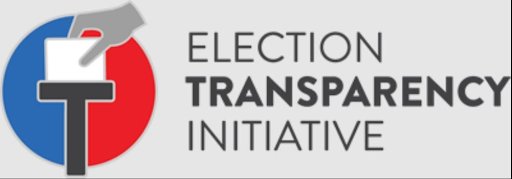
By Brian Lupo May. 3, 2023
From The Gateway Pundit

In the 2020 election, Facebook founder Mark Zuckerberg and his wife Priscilla Chan notoriously injected over $400 million into our nation’s elections. This money went disproportionately to democrat strongholds to be spent on registration drives, “get out the vote” efforts, drop boxes, “training” and much more.
In February, The Gateway Pundit reported that the non-profit they used as a vessel for this disbursement, the Center for Tech and Civic Life, has partnered with another conglomerate aiming to do the same thing again in 2024. This time it’s under the name U.S. Alliance for Election Excellence.
Following 2020, one particular state underwent legislative change that would make it significantly more difficult to privately fund elections: Georgia. Gov. Brian Kemp signed the “Election Integrity Act of 2021” (SB 202) into law in 2021.
Despite the law being in place, however, Dekalb County, the fourth largest county in Georgia, may have made a willing effort to circumvent that law by utilizing the the county government instead of the elections board to request the grant, according to FOX News:
A Georgia elections board may have violated state law when it accepted $2 million from a Mark Zuckerberg-linked group, a watchdog group claimed in a letter obtained by Fox News Digital.
The Honest Elections Project is calling for an investigation into the DeKalb County Board of Registration and Elections for a “flagrant and egregious” violation of a state ban on private funding that was put in place after accusations that donors used money to push left-wing influence ahead of the 2020 elections.
…
DeKalb County officials and supporters of the funding argue that the money was accepted by the county government as opposed to the elections board.
According to the Election Transparency Initiative, the new bill, SB222, will help “enforce the state’s 2021 ban on private financing of local election officers by ideological groups, corporations, Big Tech companies, and possible foreign interlopers.
The Election Transparency Initiative released the following regarding the passage of this bill:
Washington, D.C. – Georgia governor Brian Kemp today signed anti-corruption legislation into law helping enforce the state’s 2021 ban on the private financing of local election offices by ideological groups, corporations, Big Tech companies, and possible foreign interlopers. Previously cleared by the General Assembly on March 29th, S.B. 222 was prompted after the scheme commonly referred to as ‘Zuckerbucks’ resurfaced this year in DeKalb County.
In May 2022, county officials including Board of Registration & Elections Chair Dele Lowman Smith, Deputy Finance Director Preston Stephens, and others secretly submitted DeKalb’s 2023 grant application to circumvent state law, keeping it hidden from the board for the next nine months.
In a February 7th memo, the Election Transparency Initiative (ETI) first urged action to address the illegal DeKalb County grant in a memo to Attorney General Chris Carr, Secretary of State Brad Raffensperger, State Election Board Chair William Duffey, the General Assembly, and others. The memo requested immediate oversight and accountability to avert repeat privatization of Georgia’s elections.
ETI conducted a comprehensive grassroots education and outreach campaign to help bring awareness to this issue.
National Chairman of the Election Transparency Initiative and former Virginia Attorney General Ken Cuccinelli issued the following statement:
“We applaud the General Assembly for acting expeditiously on this important matter and thank the governor for ensuring schemes to privatize our elections have no place in Georgia. We’re further grateful for the model leadership of Senator Max Burns and his deep commitment to election integrity during a time of great uncertainty for voters whose confidence in fair and honest elections has been shaken.
“Make no mistake, DeKalb County attempted to kick the doors in on the state’s 2021 ban with its $2 million get-out-the-vote grant for partisan voter turnout. This legislation boldly proclaims that CTCL, the deceptively named U.S. Alliance for Election Excellence, and their allies can and should be halted. Everyone should be expected to play by the same set of rules, not be rewarded for attempting to violate the law.”
Importantly, S.B. 222 stipulates that private election funds like those solicited and accepted by DeKalb County shall “constitute a felony, and upon conviction shall be punished by imprisonment for not less than one year and by a fine of not less than $10,000.00.”
Citing a spokesman for secretary of state Brad Raffensperger, Fox News previously reported that there is “an active investigation at the direction of the State Elections Board.” The Georgia State Election Board also confirmed that an investigator has been assigned. Raffensperger later said that DeKalb county’s recent acceptance of the private funds “is a violation of S.B. 202 … The legislative intent of S.B. 202 was to preclude any outside organizations from sending, directly, money to counties for election purposes.”
On March 14th, ETI requested complete transparency from state agencies investigating the ‘Zuckerbucks’ 2.0 Scheme, calling for “a full, publicly released report” upon conclusion of their investigation.
Background:
The Center for Tech and Civic Life (CTCL) and a coalition of left-wing organizations are attempting to circumvent Georgia law through the newly formed front group, the deceptively named U.S. Alliance for Election Excellence. The “Alliance” is designed to systematically influence every aspect of election administration, offering local election offices an extensive portfolio of grants, trainings, resources, and consulting services. In January it was announced that the Alliance selected DeKalb County Voter Registration & Elections for an initial grant award of $2 million.
In 2021, Governor Kemp and the General Assembly enacted the “Election Integrity Act of 2021” (S.B. 202), comprehensive election integrity legislation which prohibits local election officials from accepting private non-public monies. The move came after Facebook founder Mark Zuckerberg and his wife, Priscilla Chan, gave hundreds of millions of dollars in grants to nonprofits, including CTCL, which then funneled that money to thousands of election jurisdictions in 48 states and Washington, D.C. under the guise of “election administration” during the 2020 election cycle.
The funds from CTCL and their coalition allies were strategically directed into Democrat-leaning jurisdictions at a rate of 2:1 during the 2020 cycle. In fact, Georgia was one of the biggest recipients of these funds, ultimately receiving one of the largest allocations in the nation at more than $45 million, despite the state accounting for just 3.2 percent of the nation’s population.
The Election Transparency Initiative, a partnership between the American Principles Project (APP) and Susan B. Anthony (SBA) Pro-Life America was organized to combat federal H.R. 1 and H.R. 4 legislation and advocate for state-based election reforms that voters can trust.
The “ZuckerBucks” funding in 2020 disproportionately favored Democrat strongholds, whether funding came from the CTCL or the lesser-known David Becker-founded CEIR. In 2020, in addition to CTCL funding, Georgia received $5.6 million from the CEIR, the fourth highest award of 23 states. Only Pennsylvania, Michigan, and New Jersey received more funding. New York and Arizona were just shy of Georgia’s award.
Florida, with almost double Georgia’s population, only received $287,000, or just shy of 20 times the grant awarded to Georgia.




